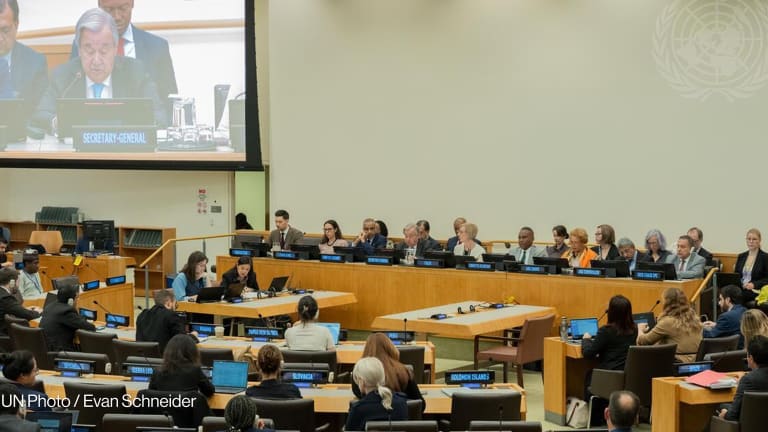
BRUSSELS — European Union institutions began negotiations this week on the bloc’s external affairs budget for 2021-2027, as member states remain gridlocked on key issues.
France is among the countries that believe the proposal from the European Commission to link 25% of all EU spending — including for external affairs — to climate objectives is insufficient. A member state source, who spoke on condition of anonymity to discuss the closed-door negotiations, said country officials would now wait until they received an overall climate target from heads of state before revisiting the specific target for external action. This is likely to come as part of a general agreement between heads of state on the next budget, the source said, which is unlikely before next year.
Migration is another area of dispute. Hungary is the most vocal among a minority of countries that want to increase the commission’s proposal for 10% of external spending to go toward this issue. The discussion is now turning to what falls under migration spending — whether governance and management, such as training law enforcement officials in northern Africa, or efforts to tackle the “root causes” that are pushing people to leave low-income countries.
Overall, the commission wants a single instrument for external action, to replace the numerous different avenues through which funding was channeled previously, worth €89.2 billion. The European Parliament backs the consolidation, though it wants €93.154 billion for the new instrument and is demanding more say over how the money is spent. Individual member states are yet to decide whether to back the commission’s plan to include the €30.5 billion European Development Fund inside the official budget for the first time — a move long called for by the Parliament to give deputies the same scrutiny over development spending as they exert over the rest of the EU budget.
Parliament also wants more of a say in programming. At present, it is the commission that proposes the amounts to be allocated to each sector, such as health or education, in different countries and geographic zones. This is then approved by member states. Parliament is pushing for a say in the spending for each priority area, the type of aid used, and the expected results and performance indicators — though member states and the commission are opposed.
As a result, when representatives from the Parliament, commission, and council met Wednesday to begin their weekly technical meetings, they agreed to wait until last to discuss Parliament’s move for greater influence, which likely means those talks won’t begin until well into next year.
Julieta González, policy and advocacy manager at Plan International’s EU office, who is among those tracking the budget talks at the European NGO confederation, CONCORD, told Devex that one of civil society’s main aims is to see poverty eradication and the 2030 sustainable development agenda clearly defined in the objectives of the new single instrument — as these were absent in the commission proposal. She welcomed Parliament and member states putting more emphasis on sustainable development in their proposals, adding “we would like to see it reflected in the outcome.”
Read more about how the negotiations have unfolded:
► European Parliament demands more ambitious aid budget
► Alarm bells sounded over new EU aid instrument proposals
► Q&A: Manservisi on Brexit, budgets, and the EU Trust Fund for Africa
Search for articles
Most Read
- 1
- 2
- 3
- 4
- 5








